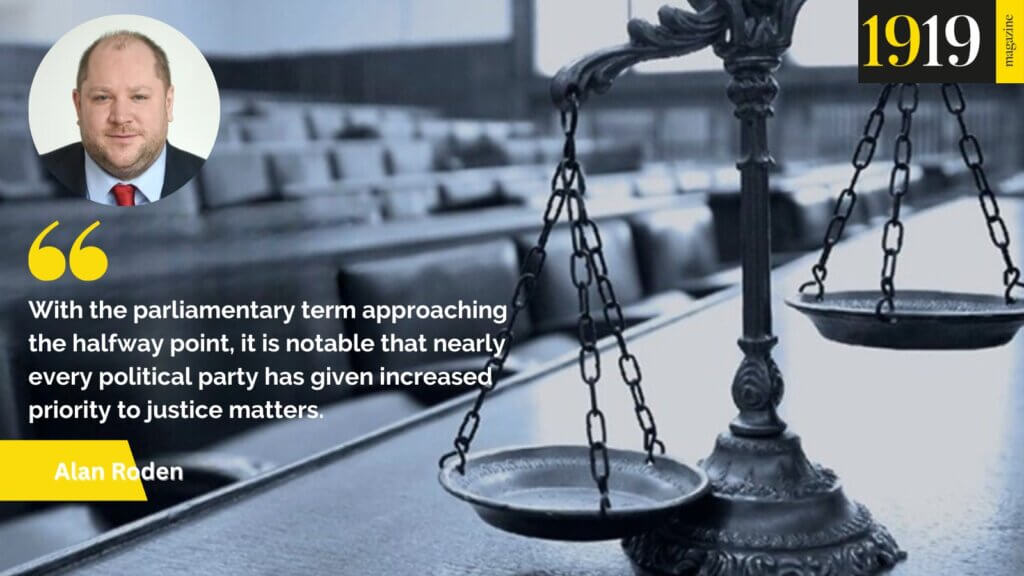Justice policy returns to the political agenda
From the hit crime shows on TV to the drama of a real-life court case, there is an insatiable appetite for all aspects of the justice system.
However, when it comes to public policy, it hasn’t always been at the top of the agenda in the Scottish Parliament.
In recent years, too often it has been overlooked amid the endless focus on the constitution or the various crises in the health service.
But that is now changing, with a raft of major reforms on the way.

Last month, the Bail and Release from Custody (Scotland) Bill passed its final parliamentary hurdle, which means courts will be required to specifically consider the physical and psychological safety of victims when making decisions on bail.
Coming soon is the Police (Ethics, Conduct and Scrutiny) (Scotland) Bill, which the Scottish Government believes will strengthen public confidence in policing.
This will require the police to have a code of ethics, with the outcomes of misconduct hearings published online and police officers no longer able to resign to avoid disciplinary proceedings.
And, most controversially, the Victims, Witnesses, and Justice Reform (Scotland) Bill has been laid before parliament.
If passed by MSPs, this will abolish the ‘not proven’ verdict, reduce the normal jury size in a criminal trial from 15 to 12, and pilot judge-only trials for rape cases.
A host of other reforms are also included, such as a new victims and witnesses commissioner, the creation of a sexual offences court, and requirements relating to trauma-informed practice.
The proposals are at the centre of an ongoing debate between the legal profession and campaigners, and there will be extensive scrutiny at Holyrood as the Bill starts its journey to the statute books.
And it’s not just the government that is prioritising justice reform; the Scottish Conservatives in particular have a host of fresh ideas.
Jamie Greene has put forward proposed legislation to increase the rights of victims and his collaborative approach in parliament has been widely acknowledged.
His unceremonious sacking as justice spokesperson by leader Douglas Ross will diminish his presence in the justice debate, although few understand the topic better than his successor, Russell Findlay.
In other policy areas, Tory MSP Pam Gosal is attempting to improve support for domestic abuse victims, Green MSP Gillian Mackay is leading the charge to introduce buffer zones around abortion clinics, and the Scottish Government has put forward the idea of decriminalising personal drug use (although this has already been rejected by the UK Government).
With the parliamentary term approaching the halfway point, it is notable that nearly every political party has given increased priority to justice matters (although Scottish Labour has work to do in this area).
Whatever views people have on the specific reforms proposed, the fact that justice reform is such a hot topic at Holyrood is to be welcomed.
The media is also finding more space to cover the issues as well, with coverage about a second independence referendum on the wane as the prospect of another vote decreases.
Seasoned political reporters cheerfully observe that they are now writing about a wider range of policy issues, just as they were in the early years of devolution.
With a new First Minister, a new justice secretary, and a new chief constable on the way, the justice landscape is ready for reform.
This article first appeared in 1919 Magazine.

About the author